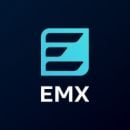With the amount of cutting-edge technology it takes to process millions of daily investments in a $77.6 trillion global stock market, it's no wonder exchanges are some of the earliest adopters of blockchain in trading. In 2015, NASDAQ announced its first securities transaction using blockchain. Since then, the market has installed Linq, a blockchain-backed platform that expedites trade settlements in minutes rather than days.
FinFix Research founder and NASDAQ contributor Prableen Bajpai advocates for blockchain’s enormous "potential ability to streamline the process" of complex procedures and risks. Proof of payment, transfer of stocks and the considerable amount of math it takes to quantify stock prices in real-time could all be improved by blockchain. Additionally, as alternative cryptocurrency becomes more popular, new avenues for trading are emerging via dozens of blockchain-based trading platforms.
Blockchain Trading
Whether it’s a crypto-trading platform or a smart contract tool, blockchain continues to make a case for its enormous future potential in financial trading. We’ve rounded up diverse companies that use blockchain in the financial trading world.
Location: Chicago, Illinois
How it’s using blockchain in trading: DRW employs experts in technology, risk management and market analysis to bring innovation to its trading activity across multiple asset classes in markets around the world. Cumberland is a subsidiary of DRW that focuses on working with investors “to safely and efficiently capitalize on opportunities in the cryptoasset space.” It specializes in spot cryptocurrency liquidity, listed options and futures, bilateral crypto options and non-deliverable forwards.
Location: Boston, Massachusetts
How it’s using blockchain in trading: Circle allows users to trade and invest in cryptocurrencies. The platform offers a wide variety of crypto investment opportunities in everything from Bitcoin to Ethereum and the Basic Attention Token (BAT). Circle trading supports both crypto-for-crypto and crypto-for-fiat currency trading.
Location: New York, New York
How it’s using blockchain in trading: Paxos is the first regulated Trust company using blockchain. By using ledger technology, the company can settle trades instantaneously, automate payment processes and eliminate third-parties. Additionally, the Paxos Standard Token (PAX) is equal to $1 USD, making it stable for digital trades.
Location: New York, New York
How it’s using blockchain in trading: Gemini lets users to buy, sell or store digital assets on its platform. The company’s Gemini Dollar (GUSD) was the world’s first government regulated stablecoin. One GUSD equals one USD and is available for trade on dozens of crypto exchange platforms. Gemini not only has a platform for individuals to invest in and trade crypto, it also offers enterprise grade trading for institutions. The company installs and manages crypto trading platforms for a number of algorithmic traders, hedge funds and digital asset businesses.
Location: San Francisco, California
How it’s using blockchain in trading: Coinbase is one of the largest crypto trading platforms on the market. The company offers Bitcoin, Ethereum and Litecoin trading platforms for individuals, and a more advanced crypto index fund for professional traders. Additionally, Coinbase established its own stablecoin (USD Coin), which can be used as a 1:1 match with the U.S. dollar and is transferable all over the world.
Location: Denver, Colorado
How it’s using blockchain in trading: ShapeShift uses blockchain to facilitate real-time, secure cryptocurrency swaps. Want to switch out your Bitcoin for Ether? ShapeShift users can quickly change out their alternative currencies for each other at real-time rates. ShapeShift created a suite of crypto trading tools, like coincap, which gives users real-time market data for digital assets or bitfract, which allows for traders to swap one input currency for up to 62 crypto assets in a single transaction.
Location: Seattle, Washington
How it’s using blockchain in trading: Strix Leviathan builds enterprise-grade crypto trading platforms for large enterprises like hedge funds and banks. The company combines proprietary big data and algorithms to pull data from multiple exchanges to help institutions make the most up-to-date trading decisions. The Strix Leviathan trade execution engine is built on a single API that allows for simultaneous trading on multiple blockchain platforms.
Location: Seattle, Washington
How it’s using blockchain in trading: Ambisafe creates tailor-made, blockchain-backed software solutions for everything from ICO launches to trading platforms. The company’s financial solutions include the creation and management of digital assets and a platform called Orderbook that facilitates the simultaneous trade of multiple cryptocurrencies.
Location: Los Angeles, California
How it’s using blockchain in trading: SFOX is a crypto trading platform for large-scale investors like high-net-worth individuals, funds and businesses. The company offers a variety of proprietary algorithms that match an investor's needs. For example, the “Tortoise” algorithm waits until a price is optimal to execute a trade. The company’s “Smart Routing” algorithm option executes trade across exchanges it deems most optimal.
Location: San Francisco, California
How it’s using blockchain in trading: EMX is a trading platform that uses cryptocurrency as collateral to trade commodities, equities and crypto futures. The company's blockchain offers contracts on all major cryptos, as well as futures options on commodities like gold and investment opportunities in futures contracts on both digital and real-world assets.
Location: San Francisco, California
How it’s using blockchain in trading: Kraken is the largest Bitcoin exchange in Euro value. It also trades in Canadian and U.S. dollars, as well as Japanese Yen and British Pounds. Kraken is also the first Bitcoin exchange to have its trading price and volume displayed on the Bloomberg Terminal and the first to pass a cryptographically verifiable proof-of-reserves audit.
Location: New York, New York
How it’s using blockchain in trading: TradeBlock provides institutional tools for blockchain-based digital currency trading. The company builds personalized bitcoin trading platforms that include proprietary market analytics, trade execution tools and an index that is secured with blockchain ledger technology.
Location: Midvale, Utah
How it’s using blockchain in trading: TZero uses blockchain ledgers to reduce trade settlement times and costs, and to increase auditability. The software helps with everything from encrypting trading accounts to post-trade clearing and reconciliation. TZero was created by Overstock.com. The e-commerce furniture giant is looking at ways to implement blockchain that will further streamline the financial markets. The company's many blockchain trading tools include digital receipts, which can help trace stock trades in real-time.
















